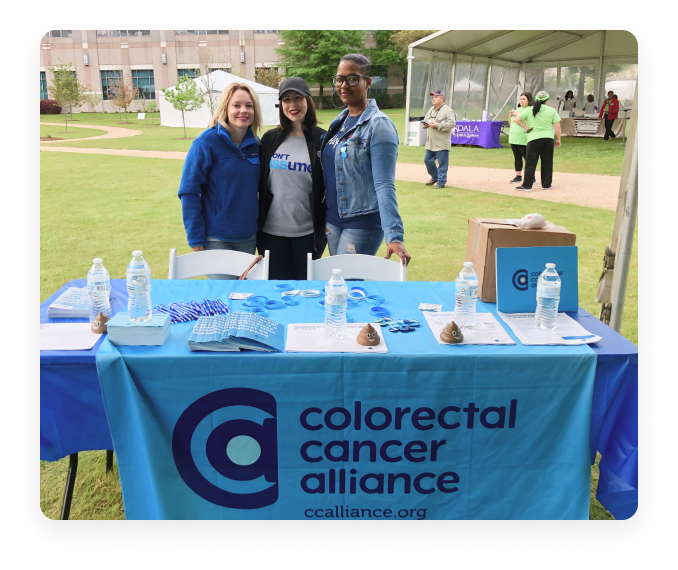

screen
Get checked starting at age 45
Colorectal cancer screening saves lives. Learn more about which screening options are best for you based on your personal risk factors.
Take the quiz
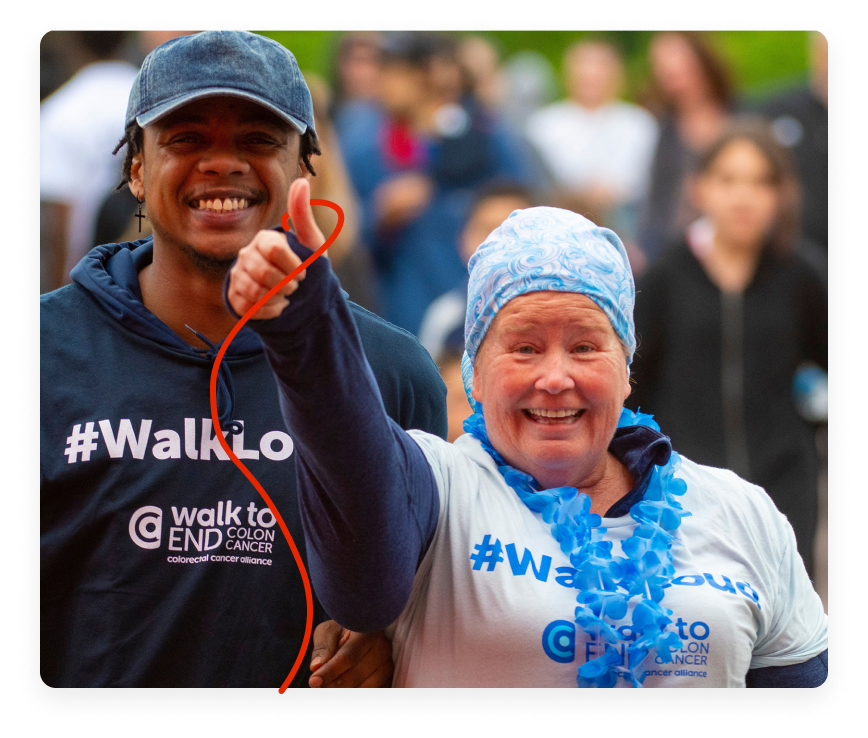

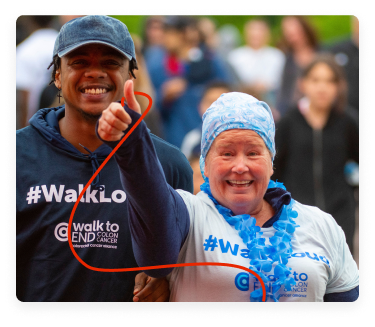
care
Access patient & family support
In-depth resources and programs—including online communities, a clinical trial finder, and a patient support hub—help to improve outcomes. Certified patient navigators provide additional assistance at no cost.

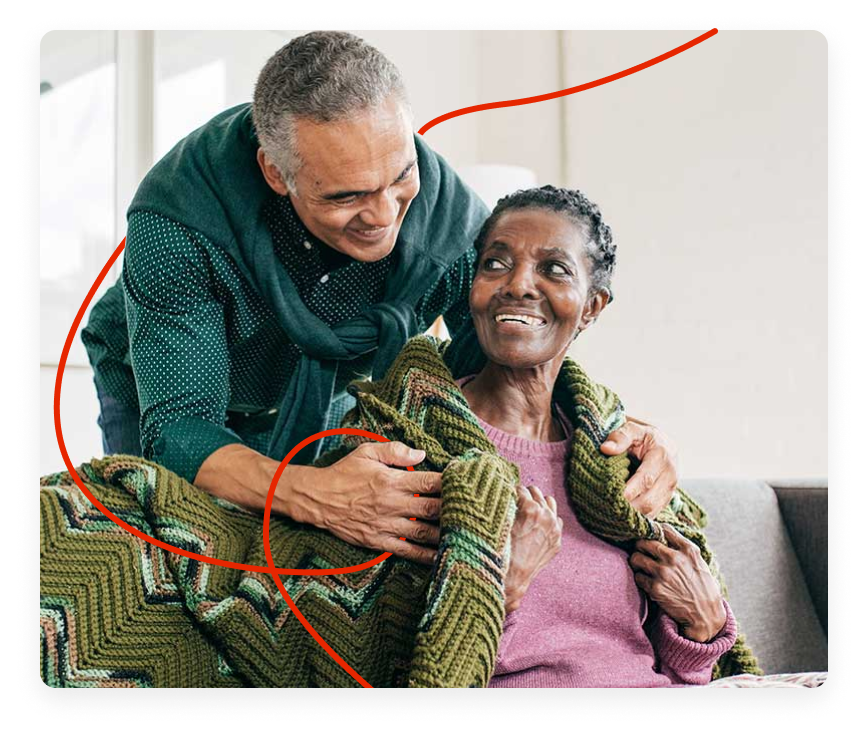

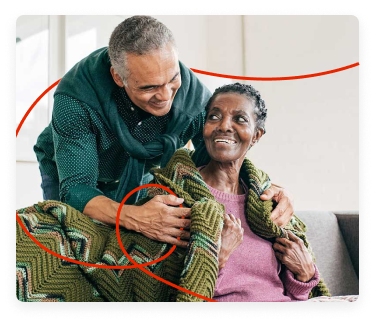
cure
Accelerating research
The Colorectal Cancer Alliance is a convening leader and funder of innovative colorectal cancer research, prioritizing the patient experience and methods to prevent this disease.
Learn more



Resources
Learn about the Alliance, colorectal cancer, and all the ways you can help—from volunteering to fundraising events and more.
Walgreens care team
Manage colorectal cancer with specialized cancer support. Consult with specially-trained pharmacists, get your medications for pickup or delivery and more.

Stories from patients & families
Leading from behind
Ryan Reynolds and Rob McElhenney made a bet: The loser had to film his colonoscopy experience and share with the world. Join them in helping make colon cancer famous—no film crews required.
Video provided by the Colorectal Cancer Alliance
FAQ
- What is colorectal cancer?
Colorectal cancer, or CRC, is a disease of the colon or rectum, which are parts of the digestive system. Unlike most cancers, colorectal cancer is often preventable with screening and highly treatable when detected early. Most cases of colorectal cancer occur in people ages 45 and older, but the disease is affecting younger people more often. Colorectal cancer is the second deadliest cancer in the United States.
- Why is screening important?
Colorectal cancers often don’t produce symptoms until they advance or grow larger, so on-time colorectal cancer screening is essential. If you do have colorectal cancer, doctors can catch it earlier with screening. Treatments work best when the cancer is in an early stage and "localized," which means it has not spread outside the colon or rectum. Localized cancers have a 91% five-year survival rate. As the cancer spreads beyond the colon or rectum, survival rates decline.
- When should I get screened?
On-time colorectal cancer screening is lifesaving. Screening should begin at age 45 for all people at average risk. People with symptoms, an inflammatory bowel disease, a family history of colorectal cancer, or certain genetic conditions, such as Lynch syndrome, are among those considered high risk. Speak with your doctor about getting checked earlier.
- What are the symptoms of colorectal cancer?
Colorectal cancer often develops without symptoms. When they occur, colorectal cancer symptoms may include:
- Blood in or on stool
- Persistent unusual bowel movements like constipation or diarrhea
- Stomach pain, aches, or cramps that don’t go away
- Losing weight for no reason
- How does screening work?
Screening helps to find growths (polyps) inside the colon and rectum. Most colorectal cancers begin as a small, non-cancerous polyp. Not all polyps will become colorectal cancer, but many do. The good news is that screening helps to find polyps so they can be removed, preventing a possible cancer diagnosis.
- What if I can't afford to pay for a screening test or the costs associated with screening?
It's important to be aware that under the Affordable Care Act, screening is covered as a preventative measure for average-risk populations with insurance. The Alliance recommends talking with your doctor, insurance provider, or local gastroenterologist to learn more about your coverage and possible financial assistance options. In addition, you can connect with the Alliance’s patient and family support team at (877) 422-2030 for further guidance and resources.
- What if I still have questions about colorectal cancer screening?
If you have questions about specific screening tests, who should be screened and when, or anything else related to colorectal cancer screening, we encourage you to visit the Colorectal Cancer Alliance website, talk with your doctor, or call the Alliance’s toll-free Helpline at (877) 422-2030.
Walgreen Co. is not responsible for the content provided by this third-party partner and disclaims liability for any content, advice, or services provided by our third-party partner. Any information you provide to such third-party site will be collected by that third party and not by Walgreens, and will be subject to that party's privacy and security policies. Information on this site may vary from Walgreens.com and is not intended to replace a conversation with your health care provider or Walgreens pharmacist.

We are taking you to Colorectal Cancer Alliance
Any information you provide will be subject to Colorectal Cancer Alliance's privacy and security policies.
